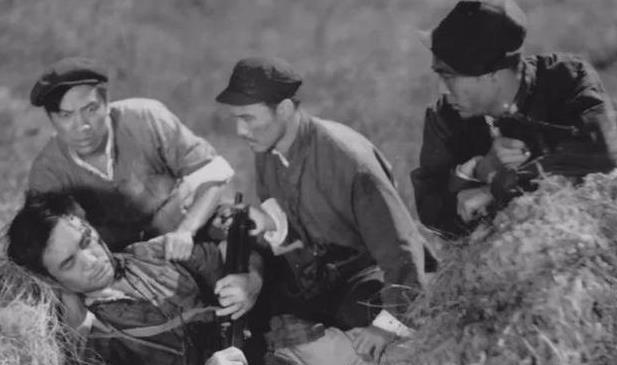The railway guerrillas were a "special force" in the history of the War of Resistance Against Japanese Aggression. Founded in 1940, it is active in the lunan area of shandong. The establishment of the railway guerrillas dealt a heavy blow to the Japanese invaders, who bombed trains and railways, which had a huge impact on the supply lines of the Japanese army.

The Railway Guerrillas were subordinate to the Sulu Detachment of the 115th Division of the Eighth Route Army. Relying on the strength of the masses, they carried out guerrilla tactics and fought heroically against the Japanese invaders. When it comes to the railway guerrillas, we have to mention Xu Guangtian, who was one of the founders of the railway guerrillas, one of the earliest members, and who served as the squadron leader of the railway guerrillas' gun brigade for a long time. What happened next?
Xu Guangtian was a coal miner in his early years, and in 1938, the Japanese army invaded Shandong, making Shandong an important stronghold on the Jinpu Railway, and sending heavy troops to guard it, this move hindered the anti-Japanese activities in East China. In order to carry out anti-Japanese activities, in 1939, the Lunan detachment came to Shandong to establish an anti-Japanese base area, but the personnel and weapons and equipment had to be solved by themselves. Personnel can be recruited, but how to solve the weapons, so Xu Guangtian, Hong Zhenhai and others got on the train and stole the weapons of the Japanese army. The Railway Guerrillas were also formally formed, with only 11 men at the time, and later grew into a team of 200 men. Although the number is small, it plays a big role.
Because of his flexible mind, Xu Guangtian contributed the most to the expansion of the team, and was deeply trusted by the captain and served as the squadron leader.
The establishment of the railway guerrilla group suppressed the arrogance of the Japanese army with its flexibility, and they used the night to cooperate with the Sulu army to deal a heavy blow to the Japanese army.
In 1945, after the victory of the Anti-Japanese War, the railway guerrillas were reorganized, the captain was appointed as a cadre at the level of director, and many people were promoted, except for Xu Guangtian, who was still the leader of the shooting team, which he believed was the organization against him. In fact, the reason for organizing such an appointment is that Xu Guangtian's middle gun team has been retained, and such a team is difficult for others to lead, and only he can be competent, so he retains his original position.
But Xu Guangtian did not think about it so much, returned to the countryside in a fit of rage, and then, under the inducement of the reactionaries, defected to the enemy's camp and became a cadre without real power. At this time, Xu Guangtian understood that the enemy did not want to reuse him, and because he had received many years of party education and was not accustomed to the style of reactionaries, he returned to his hometown two months later and became an ordinary person.
Later, the whole country was liberated, and Xu Guangtian was imprisoned for two years for defecting to the enemy. After being released from prison, he has been living in his hometown, and later fell seriously ill and died.